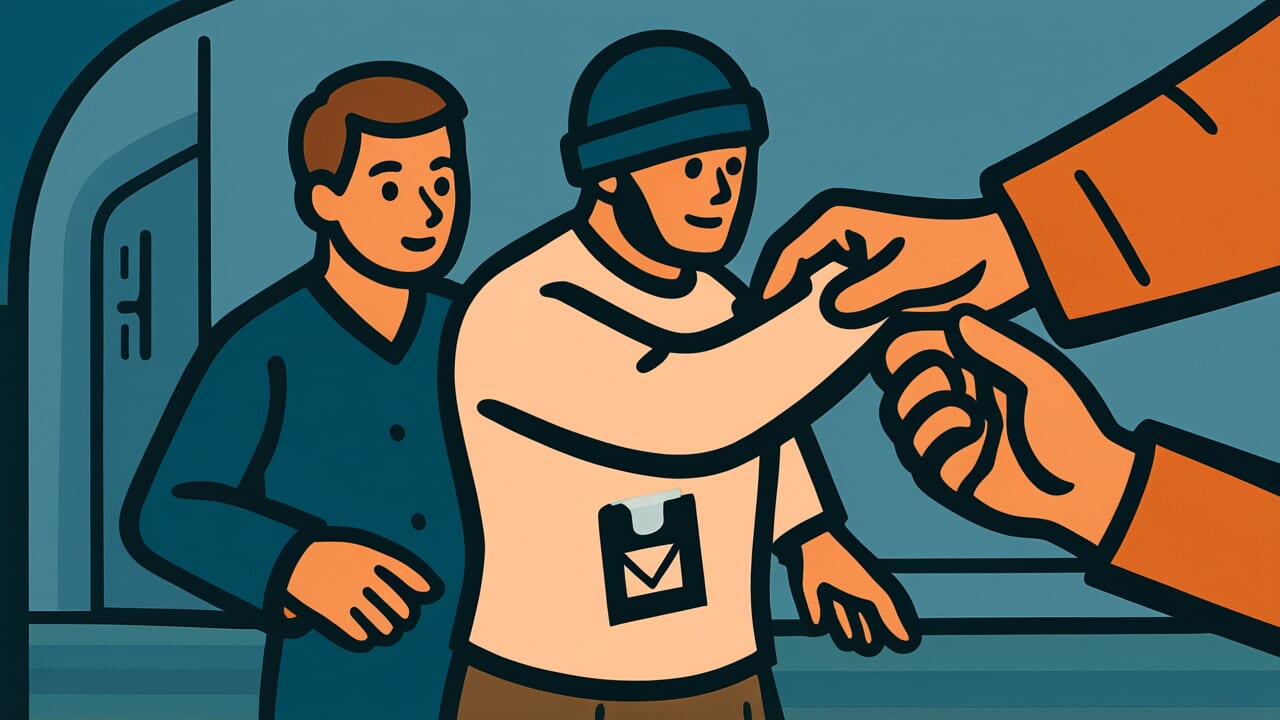How to Read “A thief holding back his sleeves”
Nusubito no sode hikae
Meaning of “A thief holding back his sleeves”
“A thief holding back his sleeves” means people doing wrong things protect each other.
The proverb describes how wrongdoers hide or shield each other’s misdeeds out of a sense of loyalty.
This saying is used to criticize situations where people committing wrongdoing band together.
They refuse to admit their faults and cover for one another.
For example, when misconduct is discovered in an organization, all involved parties coordinate their stories to hide the truth.
The proverb sharply points out a human tendency. People doing bad things often develop a strange sense of solidarity.
The psychology of protecting immediate companions overrides justice or morality.
In modern society, we see this in corporate scandals and political corruption.
When people involved protect each other, it perfectly illustrates what this proverb describes.
Origin and Etymology
No clear written records explain the origin of this proverb.
However, the structure of the phrase reveals an interesting background.
Let’s focus on the expression “holding back sleeves.” In Edo period Japan, pulling someone’s sleeve was a form of physical communication.
People used it to stop someone or get their attention.
In crowded places, people lightly pulled sleeves to signal each other or warn of danger.
What does it mean when thieves pull each other’s sleeves?
We can imagine them warning each other when a companion tries something dangerous.
Or helping each other when about to get caught.
Our ancestors keenly observed that even wrongdoers have a kind of solidarity and mutual aid.
The social structure of the Edo period likely influenced this expression.
Historical records show that bandit groups and criminal organizations had their own codes and sense of camaraderie.
They had a culture of protecting one another.
The prevailing theory is that this proverb emerged and spread among people, reflecting that reality.
Usage Examples
- In that company’s accounting fraud case, all the executives are like a thief holding back his sleeves – nobody will tell the truth
- Politicians not investigating each other’s corruption is exactly a thief holding back his sleeves
Universal Wisdom
“A thief holding back his sleeves” brilliantly captures the complex psychology of humans.
Why do wrongdoers protect each other? Because humans fundamentally fear loneliness and seek bonds with companions.
What’s interesting is the paradox. Even among wrongdoers, or rather because they’re wrongdoers, strong solidarity emerges.
By sharing guilt, they hold each other’s weaknesses and become unable to separate.
A distorted form of unity exists there, different from bonds between those walking the right path.
This proverb has been passed down because “evil solidarity” has existed in every era and place in human society.
People are creatures who live in groups.
Even when that group commits wrongdoing, escaping the sense of belonging and camaraderie isn’t easy.
Our ancestors saw through this human weakness. The psychology of protecting immediate companions over justice or morality.
It’s also the flip side of “never betraying companions,” a value sometimes considered virtuous.
This proverb sharply points out instinctive human behavior patterns that transcend good and evil.
That’s why it continues to resonate with us across time.
When AI Hears This
A thief tells another thief “don’t steal.” This contradictory situation demonstrates a paradox in game theory.
Those with nothing to lose make the most credible threats.
Normally, threats need credibility to work. When a reputable company says “we’ll stop doing business if you breach the contract,” it’s persuasive.
They don’t want to lose their reputation. But in relationships between thieves, this logic reverses.
A thief with zero moral reputation has nothing to lose by exposing others.
Rather, mutual assured destruction emerges: “If you hold back my sleeves, I’ll expose your past.”
It’s the same structure as nuclear-armed nations unable to attack each other.
What’s fascinating is that this threat actually works. Game theory has a concept called “subgame perfect equilibrium.”
If both expose each other, both lose, so an equilibrium state emerges where both stay silent.
When thief A reduces the probability of criticizing thief B to zero, B also stays quiet.
The weaker one’s moral position, the more possible the defiant attitude of “I’m finished anyway” becomes.
This paradoxically gives negotiating power.
We see this in modern whistleblowing and exposure battles.
When weak people reach a state of “nothing to lose,” they demonstrate unexpected negotiating power.
Lessons for Today
This proverb teaches us not to stay silent when we see wrongdoing in organizations or groups.
The feeling of “I can’t betray my companions” is understandable.
But it shouldn’t become a reason to cover up wrongdoing.
In modern society, situations like “a thief holding back his sleeves” can arise anywhere.
In corporations, schools, and politics.
What matters is whether you can make the right judgment when caught in such situations.
Loyalty to your organization versus loyalty to justice. When these two conflict, which will you choose?
In the short term, protecting companions might seem easier.
But in the long term, correcting wrongdoing truly protects your organization and companions.
This proverb isn’t just criticizing wrongdoing. It’s also a question for ourselves.
Am I on the right side? Have I unknowingly participated in wrongful camaraderie?
Having the courage to ask yourself these questions is the most important lesson to learn from this proverb.



Comments